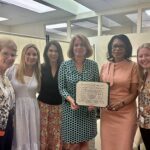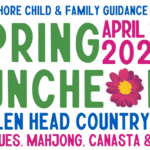21 February, 2018, From Blank Slate Media
The 2018 Valentine’s Day massacre at Douglas High School in Parkland, Fla., has elevated beyond cliché status the oft-stated sentiment about a loss of innocence in childhood.
For many, the events of that day evoked painful memories of the 2012 Sandy Hook Elementary School shooting and scores more in recent decades.
Schools, movie theaters, concert venues and more have become American killing fields.
After “thoughts and prayers” are paraded around by politicians from all sides, what happens next?
Many gun rights advocates, refusing to allow for the fact that our forefathers were talking about the right to bear arms such as muskets and had no conception of guns that could shoot down dozens in an instant, stand in the position that it’s not about guns but rather mental illness.
As the executive director of North Shore Child & Family Guidance Center, which serves children and their families facing issues such as depression, anxiety and substance use disorders, I have seen the many faces of mental illness and addictions for more than 40 years.
It is incredibly rare for those who are labeled as mentally ill to be violent. In fact, they are far more likely to be the victims of violence than the perpetrators.
Nevertheless, we do need to have a discussion about mental illness at times like these. That discussion, however, needs to be about how health insurance companies and the elected officials who count on their donations are failing miserably at having adequate numbers of providers on their lists who take insurance.
Over and over again, we hear that, before they found North Shore Child & Family Guidance Center, which never turns anyone away for inability to pay, they made numerous calls to the mental health providers on their insurer’s list and found that they no longer take insurance or are booked for months.
Aside from receiving emotional first-aid, the surviving students from Douglas High are demonstrating that they need to take action; action that represents triumph over the demoralization of helplessness and despair.
Noted trauma expert Bessel van der Kolk said that “talking about the trauma is rarely if ever enough.”
Survivors have a need to create symbols such as memorials or participate in action that “enable them to mourn the dead and establish the historical and cultural meaning of the traumatic events.”
The surviving students from Parkland are turning their heartbreak and rage into activism by demanding a new look into America’s gun laws, as Emily Witt wrote in the New Yorker (Feb. 17).
In her encounters with some of the surviving students she reported that “Their grief was raw, their rage palpable.”
“Emma Gonzalez, a senior at Douglas, had the most searing indictment:
“The people in the government who were voted into power are lying to us. And us kids seem to be the only ones who notice and are prepared to call B.S.
“Companies, trying to make caricatures of the teenagers nowadays, saying that all we are self-involved and trend-obsessed and they hush us into submissions when our message doesn’t reach the ears of the nation, we are prepared to call B.S.
“Politicians who sit in their gilded House and Senate seats funded by the N.R.A., telling us nothing could ever be done to prevent this: we call B.S.
“They say that tougher gun laws do not prevent gun violence: we call B.S.”
From Columbine to Parkland, there have been so many shocking events in between. Too many have faded from consciousness.
As journalist Gary Smith, who wrote about a lesser known 2012 shooting at Chardon High School in Ohio, stated: “The clock is already ticking in the land of amnesia.”
How long before Parkland, too, is gone? If it is up to the young activists in Parkland, never.
Andrew Malekoff
Roslyn Heights
Executive director of North Shore Child & Family Guidance Center, which provides comprehensive mental health services for children from birth through 24 and their families. To find out more, visit www.northshorechildguidance.org.














